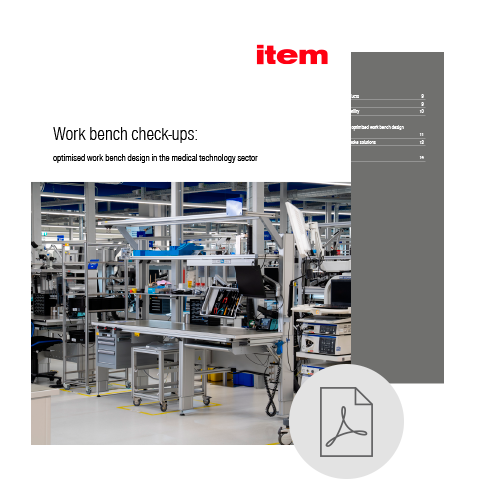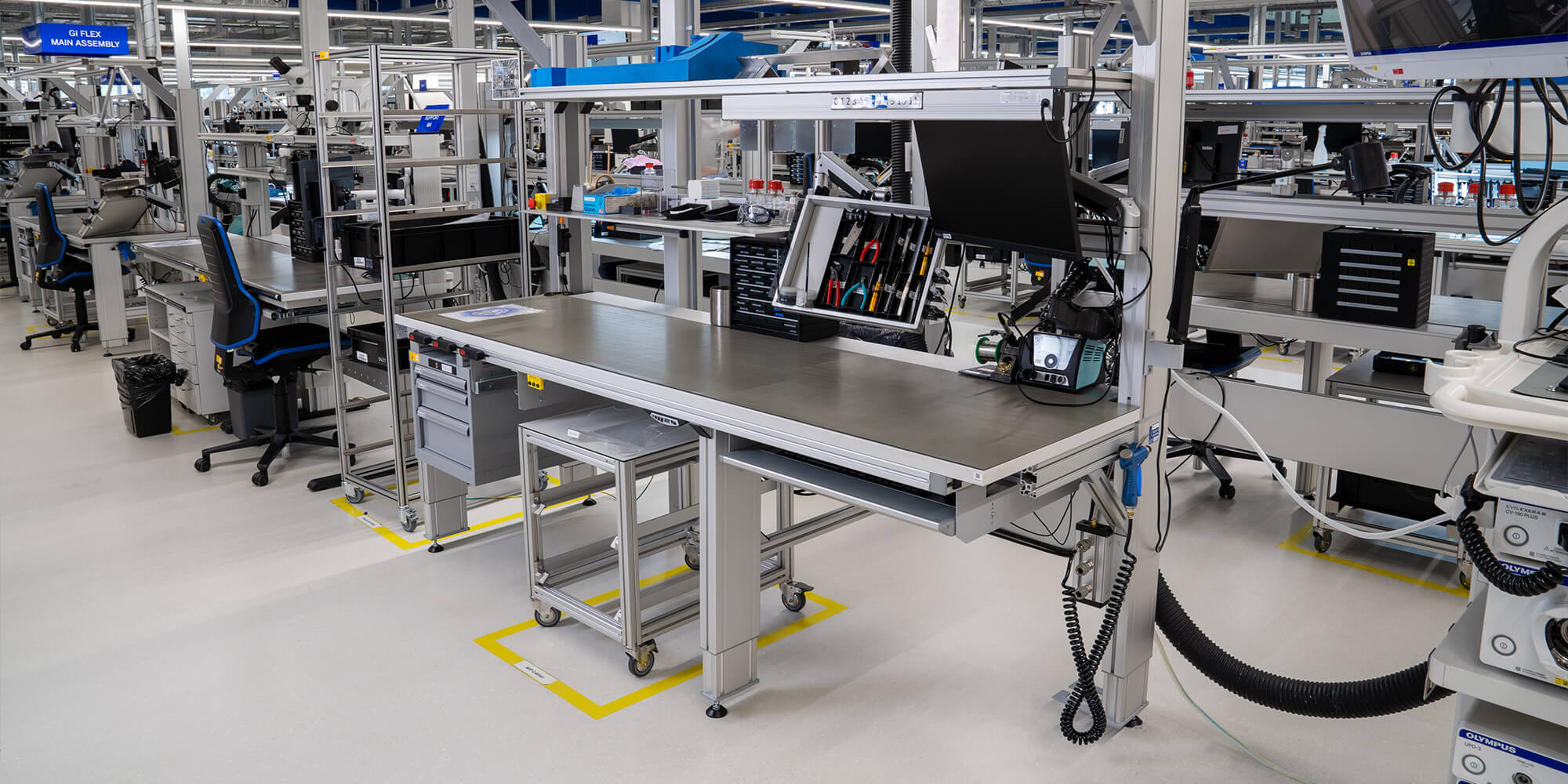Staff can only make high-quality, faultless products if they are able to concentrate fully on their work. In the medical technology sector, work needs to be performed with extra care and precision. But what’s the best way of achieving this?
All over the world, surgeons apply their skills and knowledge day in, day out. Their job is all about improving health and saving lives. One of the routine procedures they perform is an endoscopy – but the endoscope they use must work perfectly. After all, even a minor fault or defect could have serious consequences for the patient. To strictly prevent faults and defects, the medical technology sector demands extremely high standards when it comes to the quality of medical instruments. Compliance with high standards of hygiene and safety is also crucial. At Olympus, a leading manufacturer of medical endoscopes, such compliance is a top priority. The company attaches great importance to top-quality manufacture and careful repair and maintenance of its own products. This emphasis on quality is clearly evident at the Olympus Medical Products repair centre in the Portuguese city of Coimbra, for example. In the repair centre, staff work at ergonomically designed work benches based on our item Work Bench System.
Optimised work bench design offers added value, not only at Olympus, but in the medical technology sector as a whole. Making sure all applicable guidelines are followed calls for well-trained, qualified specialists, who need to be able to carry out their work with precision and focus, while also complying with all regulatory requirements. Ergonomically designed work benches play a key role in this.

Best practice: Manual work benches in medical technology
Find out all the details about work bench design at Olympus in a success story: This is how ergonomics, productivity and safety are perfectly combined. Let us inspire you!
TO THE SUCCESS STORY
Ergonomics as a means of quality assurance
When work benches are designed ergonomically, this has a direct impact on the quality of the work performed at them, which also helps ensure the quality of the end product. “We can’t achieve anything without our employees. This is why we opted for more ergonomic work benches that are well suited to the requirements of our work and also improve the working conditions for our technicians,” emphasises Tiago Martins, who is head of the technical department at Olympus Medical Products Portugal. Ergonomic chairs and tables are both key elements. A high-quality chair that can be adjusted to suit each employee promotes a healthy posture and makes dynamic sitting possible. However, good posture is not the only thing that matters when it comes to working productively for prolonged periods in the medical technology sector. For example, by switching regularly between sitting and standing, employees can ensure their upper body moves more, which improves their concentration. A height-adjustable work bench makes it easy to switch between different working heights. Each employee can adjust the height of the work bench to suit their own physical needs.
Working in medical technology often involves fine-motor tasks, so optimal lighting is crucial.
The organisation of materials at the work bench is also very important. Material supply, picking and tool stowage systems should be flexible and adjustable so that they can be adapted to suit each employee’s visual acuity and personal handling area. This means unnecessary head movements are avoided. Pivot arms provide valuable assistance here, and they can be fitted with appropriate modules to create a customised solution. Working in medical technology often involves fine-motor tasks, so optimal lighting is crucial as a means of ensuring illumination is largely even and glare-free. It is important to adjust the lighting level to suit both the task at hand and the employee’s personal eyesight, but that’s not all – you should also pay attention to the colour rendering index and colour temperature.
High-quality products thanks to ESD safety and cleanroom conditions
When it comes to ensuring fault-free manufacture of medical technology products, healthy staff are not the only essential factor. The products also need to be protected against risks such as electrostatic discharge (ESD) and contamination. Especially in the medical technology sector, ESD damage can seriously impair electronic components and stop them from working properly. A well-thought-out ESD safety concept is therefore vital. ESD safety and an ergonomic work bench design also go hand in hand. By opting for a special table top, for example, you can make a height-adjustable work bench ESD-safe. Alternatively, if components are handled in a small area of the work bench only, an ESD table mat will often be sufficient. However, either way, the staff working with sensitive electronic components must also be connected to the work bench via an ESD wristband.
An ergonomic work bench design and ESD safety can be combined with clean conditions as specified by standard DIN EN ISO 14644-1.
To prevent contamination by germs, dust or bacteria, the medical technology sector uses cleanrooms. An ergonomic work bench design and ESD safety can be combined with clean conditions. Standard DIN EN ISO 14644-1 plays a key role here. You can add a laminar flow box to an ergonomic item work bench with ESD safety, for example, thus creating a cleanroom-compatible work bench that is also designed to be ESD-safe. By using the free item Work Bench Configurator, you can plan ergonomic assembly work benches quickly and easily. One particular highlight is that this configurator defines and visualises the electrostatic protected area (EPA) in each case. If you place components in the EPA that are not electrostatically dissipative, a yellow warning will appear, so you can correct your design immediately.
Are you interested in ergonomic work benches in production? Then we have something that’s right up your street! Simply subscribe to the item blog by completing the box at the top right.


